AARP Hearing Center

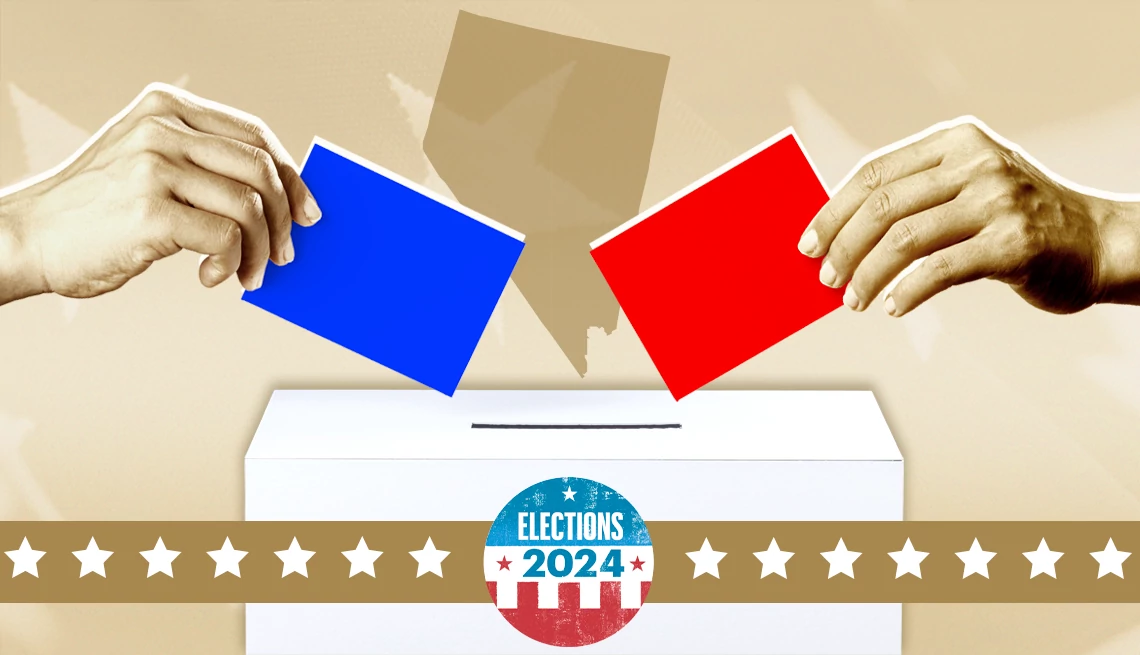
More voters in the presidential election battleground state of Nevada say they would cast ballots for former President Donald Trump than for President Joe Biden if the election were held between the two candidates today, according to an exclusive new AARP survey.
Fifty-three percent of Nevada voters age 50-plus say they would support Trump, a Republican, compared with 41 percent for Biden, a Democrat — a 12-point lead in a head-to-head matchup.
Trump’s lead narrowed to 3 percentage points among Nevada voters of all ages, with 48 percent favoring him, compared with 45 percent for Biden, the poll shows. Among Hispanic voters 50-plus, there was a shift: 51 percent favor Biden compared with 41 percent for Trump. Hispanic voters make up 22 percent of the eligible voter population in Nevada, according to a 2022 Pew Research Center analysis.
“We have a huge Hispanic population, so that vote will matter,” says Maria Moore, AARP Nevada state director.

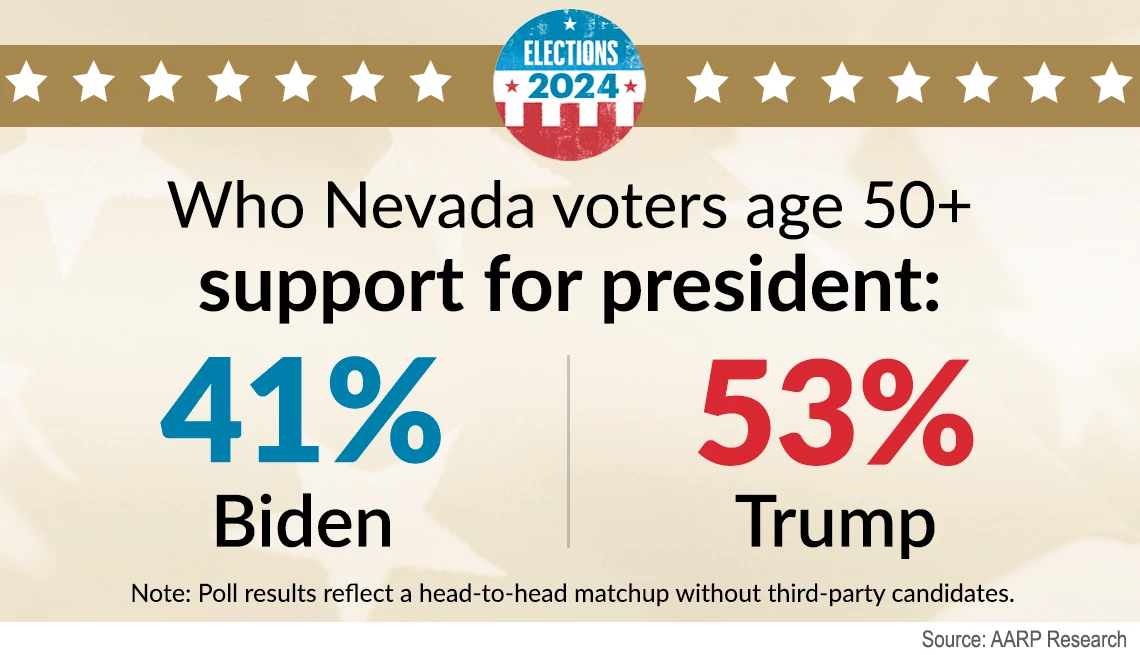
The poll was conducted by bipartisan team Fabrizio Ward and Impact Research and included 1,368 likely Nevada voters interviewed between June 12 and June 18.
When pollsters asked voters who they would support in a race between Trump, Biden and third-party candidates, including Robert F. Kennedy Jr., Trump’s lead widened among voters 50-plus, with 50 percent of voters favoring Trump, 38 percent favoring Biden, and 6 percent favoring Kennedy. Kennedy has not yet gained access to the Nevada ballot.
“If he is on the ballot, it makes Biden's chances of winning Nevada a lot harder,” says Bob Ward, a partner at Fabrizio Ward.
Nevada is among the battleground states for the presidency and provides six electoral votes toward the 270 total needed for the victor. This places it in the bottom half of all U.S. states in terms of electoral votes granted. But in what’s expected to be a close presidential election, those six votes could prove critical to the outcome. In 2020, Biden won Nevada with a margin of just 2.7 percentage points.
“Any one of the states that we’re calling battlegrounds could make the difference,” says Ward.
Jeff Liszt, partner at Impact Research, says split-ticket voters are likely to play a major role in determining which presidential candidate wins the state this year.
“When you look at the older voters, 43 percent are straight-ticket Republican and 35 percent are straight-ticket Democrat, but 23 percent are splitting their tickets,” Liszt says. “[That’s] an indicator that there are more voters up for grabs right now than there may have been in recent elections.”
When polled on the performance of the two candidates as president, 40 percent of voters 50-plus approve of what Biden is doing in office, while 59 percent disapprove. For Trump, 56 percent of voters 50-plus approve of what he did as president, versus 43 percent who disapprove.

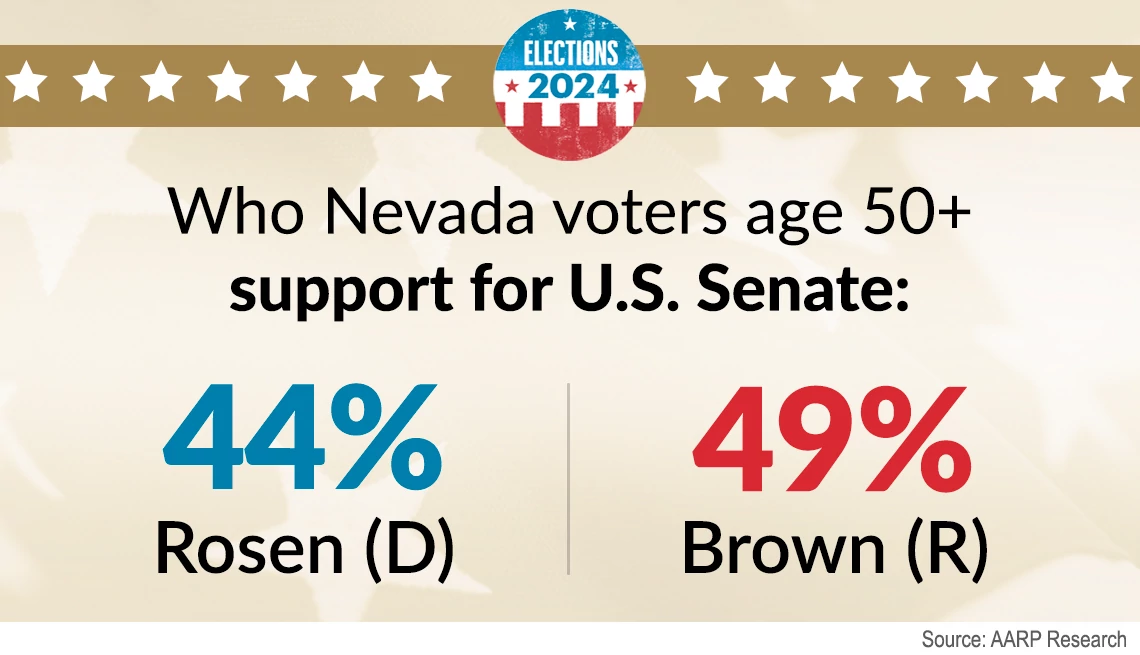




























































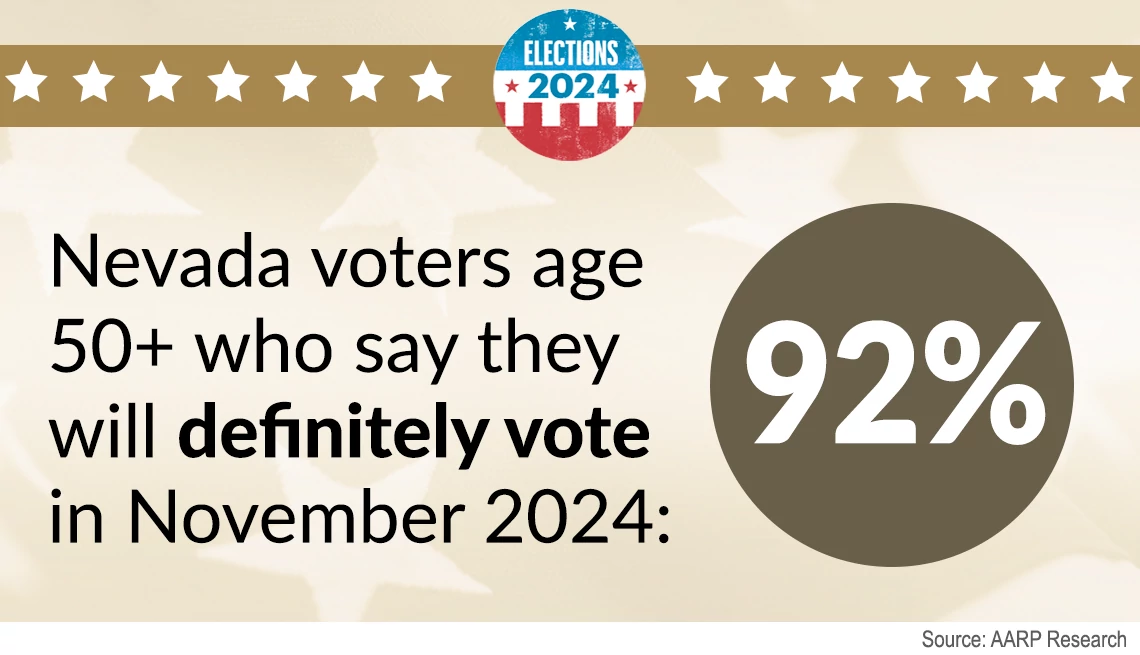
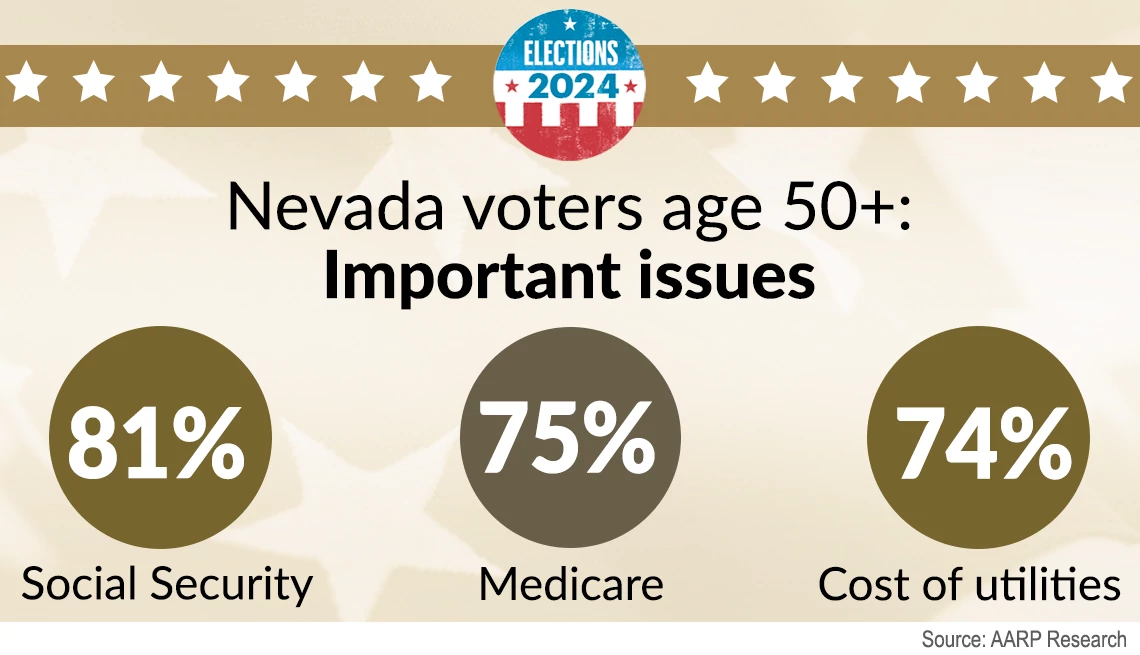


More From AARP
NV Voters 50-Plus Are Committed to Voting in November
Nevada voters 50-plus are the most committed age group for voting in the 2024 election, and they will support a candidate who will protect Social Security.
AARP Poll: Battleground District Voters Split Between Trump, Biden
Trump has 3-point lead among voters 50-plusHow to Register and Vote in the 2024 Primary Elections
State-by-state guide to everything you need to knowRecommended for You